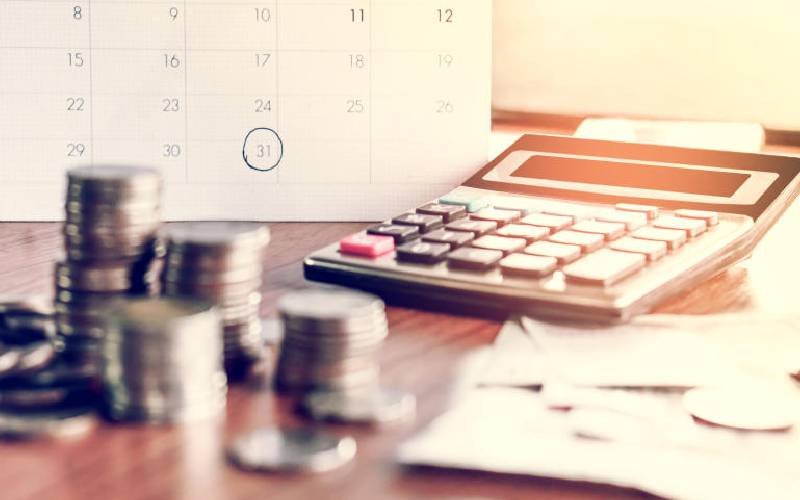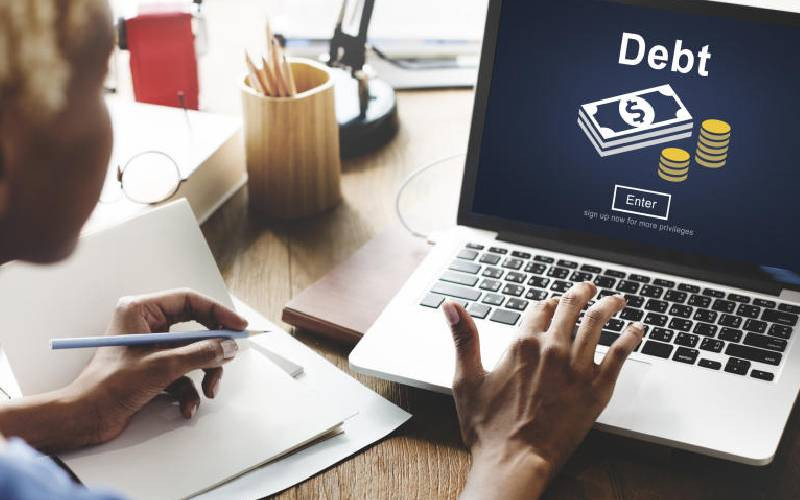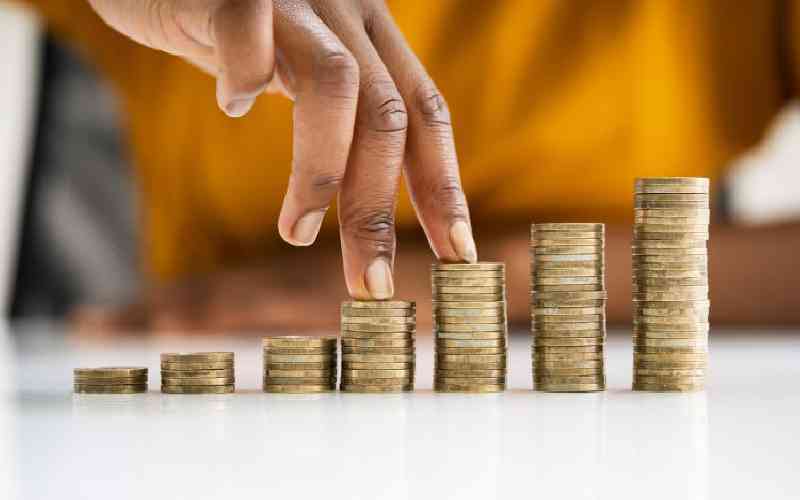
A woman who spent years living 'paycheck to paycheck' has explained how she paid off Sh1.975 million (£13,000) worth of debt in a year – and now has savings for the first time in her life.
Verena Hallam, 31, admits she was an impulse spender until the UK went into lockdown last March.
The social butterfly said at the height of her spending, she was splashing out Sh60,700 (£400) a month on nights out with friends.
So much so, that she landed herself a Sh1.975 million (£13,000) credit card bill which prompted some major lifestyle changes.
In the past year, Verena, who lives with partner Iain Goddard, says she went on a financial detox in a bid to get back on top of her bank account.
"Having spent years spending impulsively and six years living paycheck to paycheck, and cutting out all non-essential spending completely to undo the damage, I now have a healthy relationship with money," Verena said.
"For me, it's about making sure that all of my spendings are intentional and not thoughtless or impulsive."

Thanks to her super saving skills, Verena paid off the debt in October 2020 and has managed to put away Sh607,980 (£4,000) in a savings account in the past six months.
Here's how.
"I was in Sh1.975 million (£13,000) of debt and my spending habits were atrocious," Verena, who racked up the debt over six years, told Jam Press.
"I was at an age where nights out were life and almost all of my socialising happened at bars. I'd spend a minimum of Sh7,600 (£50) a week on drinks and taxis.
"It got to a point where I had no disposable income at all after bills and repayments, which was a real wake-up call moment.
"During 2020 I got into a new groove with saving because of the new way of life that the pandemic has forced upon us.
"Because I can no longer go out for lunch or meet my friends for a drink I've saved a lot of money by force, but I've also found that it has been easier to save in other areas too with a few habit changes."
Switch bank accounts
Verena managed to save Sh140,790 (£900) in just one month by switching bank accounts - and it took just 10 minutes.
"I made use of several different banks' current account switching incentives to save up Sh140,790 (£900) towards my emergency fund," she said.
"The first account I switched to was Nationwide's current account because they were running an incentive where if you recommended a friend and they switched, you each got Sh15,200 (£100), so my boyfriend referred me.
"You could refer up to five friends in a tax year, so I referred five people and made Sh76,000 (£500), plus the Sh15,200 (£100) I'd got for switching in the first place."

Cashback credit cards
"With banks offering really low-interest rates for savings at the moment, there aren't really many opportunities to grow my money passively, so I'm maximising any opportunities to earn cashback instead," she explained.
"I currently have a cashback credit card which I use for all purchases, which earns me 5% as an introductory offer and will go down to 1% after I've spent a certain amount."
Verena uses the card for all of her normal spending and pays it off in full every week via direct debit.
She added: "Making extra payments every week helps me to have a more realistic picture of how much money I actually have in the bank at any time.
The super saver also recommends signing up to sites such as Quidco and Topcashback, which alert customers when cashback is available for their online purchases.
De-clutter and sell
Spending so much time at home has prompted Verena to have several clear-outs - allowing her to make money out of items she no longer uses.
She said: "I've made quite a lot of money in the past six months through selling homeware and furniture I no longer loved on Facebook Marketplace.
"A fiver or tenner here and there has really added up and I've made over Sh30,000 (£200) so far."
Verena also recommends selling old clothes on Vinted, which allows you to add the money you make to your app balance, meaning you can use it to purchase new clothes.

Get thrifty
In a bid to not only save money but also be kinder to the planet, Verena started buying most of her clothes on resale sites like Vinted and Depop.
She said: "I'll often find things that are still brand new with the tags on but for half the price.
"This has saved me a ton of money, particularly on things like knitwear for the autumn/winter months, which would usually be quite expensive."
Rent out spare rooms
Got a spare room? Rent it out.
Although this option isn't available to everyone - especially those stuck in small flats with no extra space - Verena has been able to rent out her spare room, which has helped cut costs and build up savings faster.
"I've been renting this particular flat for the past two and a half years, and I've been subletting - with my landlord's permission - for that whole time, until this January," Verena said.
"I let it out to friends at first, and then found my most recent housemate on Spareroom.
"With the pandemic, I feel less comfortable having an extra person coming and going, so I have decided to stop letting it out for the time being. I now use my spare bedroom as space to workout while the gyms are shut."

Make a spreadsheet
Being self-employed, Verena's monthly savings can often fluctuate so she keeps track of them using a spreadsheet.
Although she paid off the debt last year, she didn't stop putting money away each month.
"I finished paying off my credit card debt in October and I've put the amount I used to pay towards that straight into savings.
"I then only pay myself a set amount each month as if it were a wage."
Getting back on track with her finances has drastically improved Verena's life but she still makes sure to treat herself every now and then.
She now spends Sh45,500-60,700 (£300-400) a month on food, fuel and any household bits.
Anything else on top is budgeted for.
Thanks to her super saving skills, Verena has also managed to source out budget holiday deals and recently enjoyed a trip to Cologne with a pal, spending just Sh1,500 (£10) on flights.
She also saves extra cash by cooking at home - using the lockdown to learn how to make her own favourite sushi recipe, and swapping an expensive gym membership for bike rides with her boyfriend.
 The Standard Group Plc is a multi-media organization with investments in media
platforms spanning newspaper print
operations, television, radio broadcasting, digital and online services. The
Standard Group is recognized as a
leading multi-media house in Kenya with a key influence in matters of national
and international interest.
The Standard Group Plc is a multi-media organization with investments in media
platforms spanning newspaper print
operations, television, radio broadcasting, digital and online services. The
Standard Group is recognized as a
leading multi-media house in Kenya with a key influence in matters of national
and international interest.










